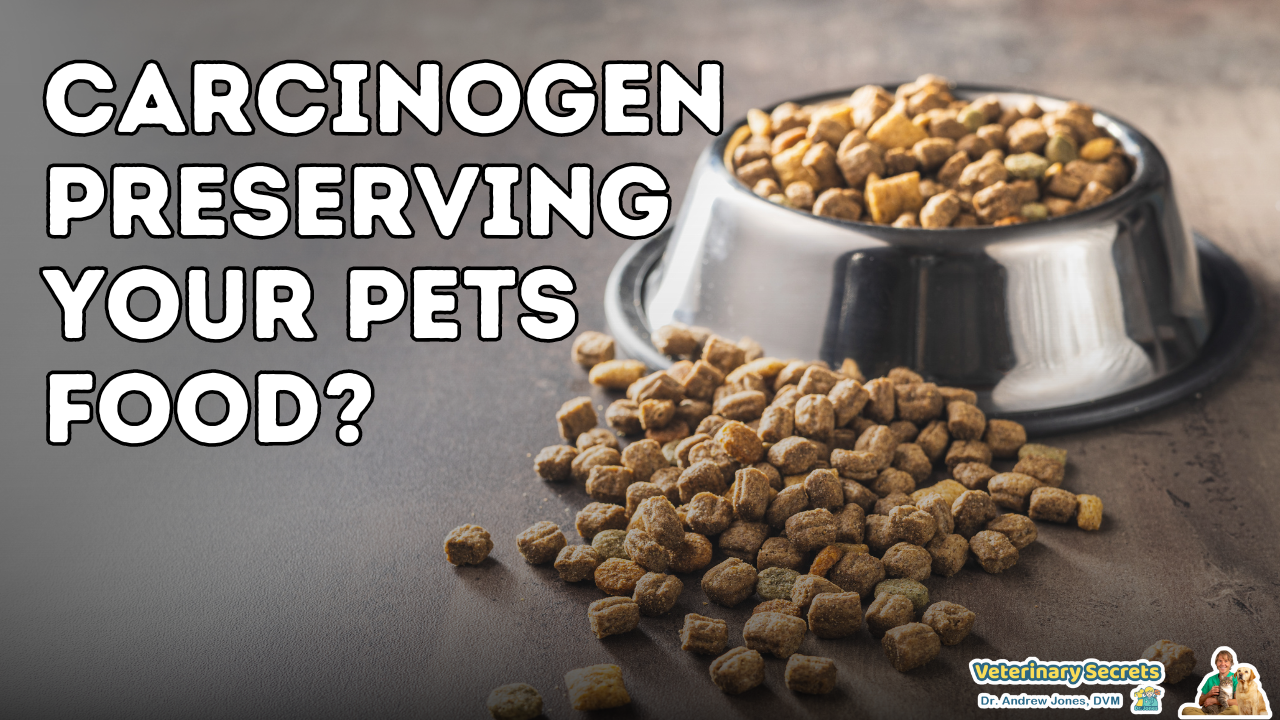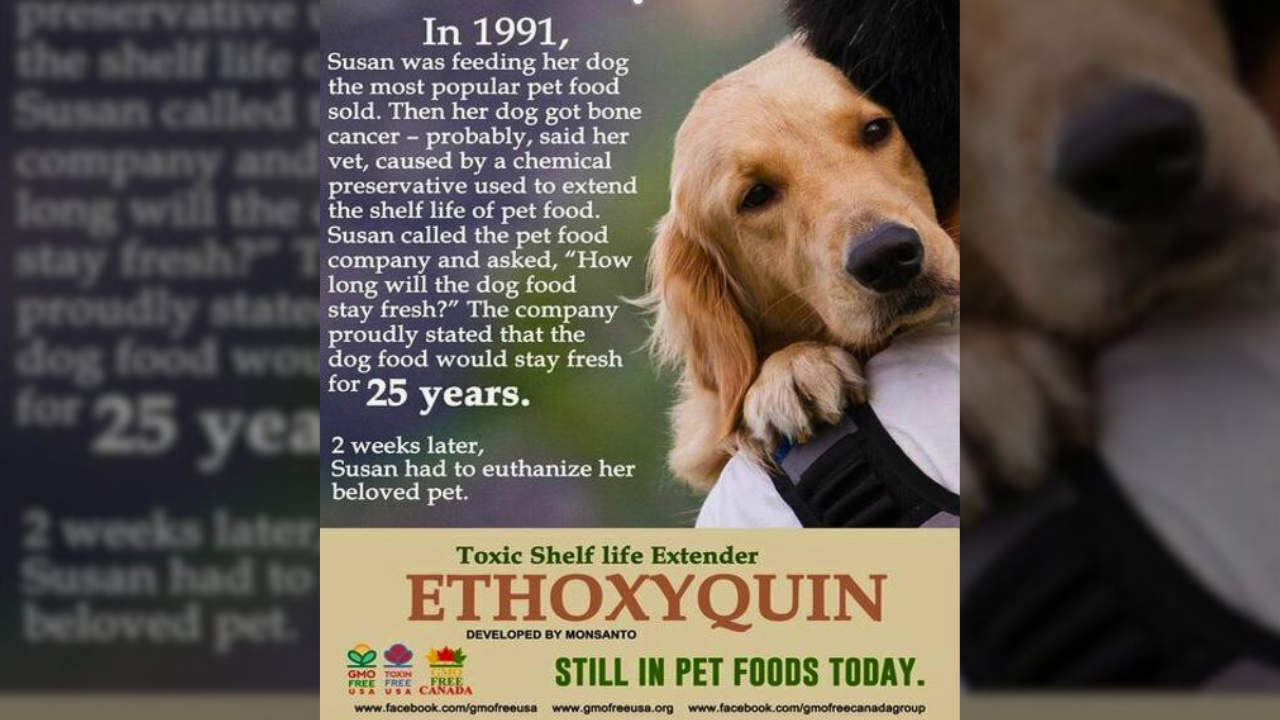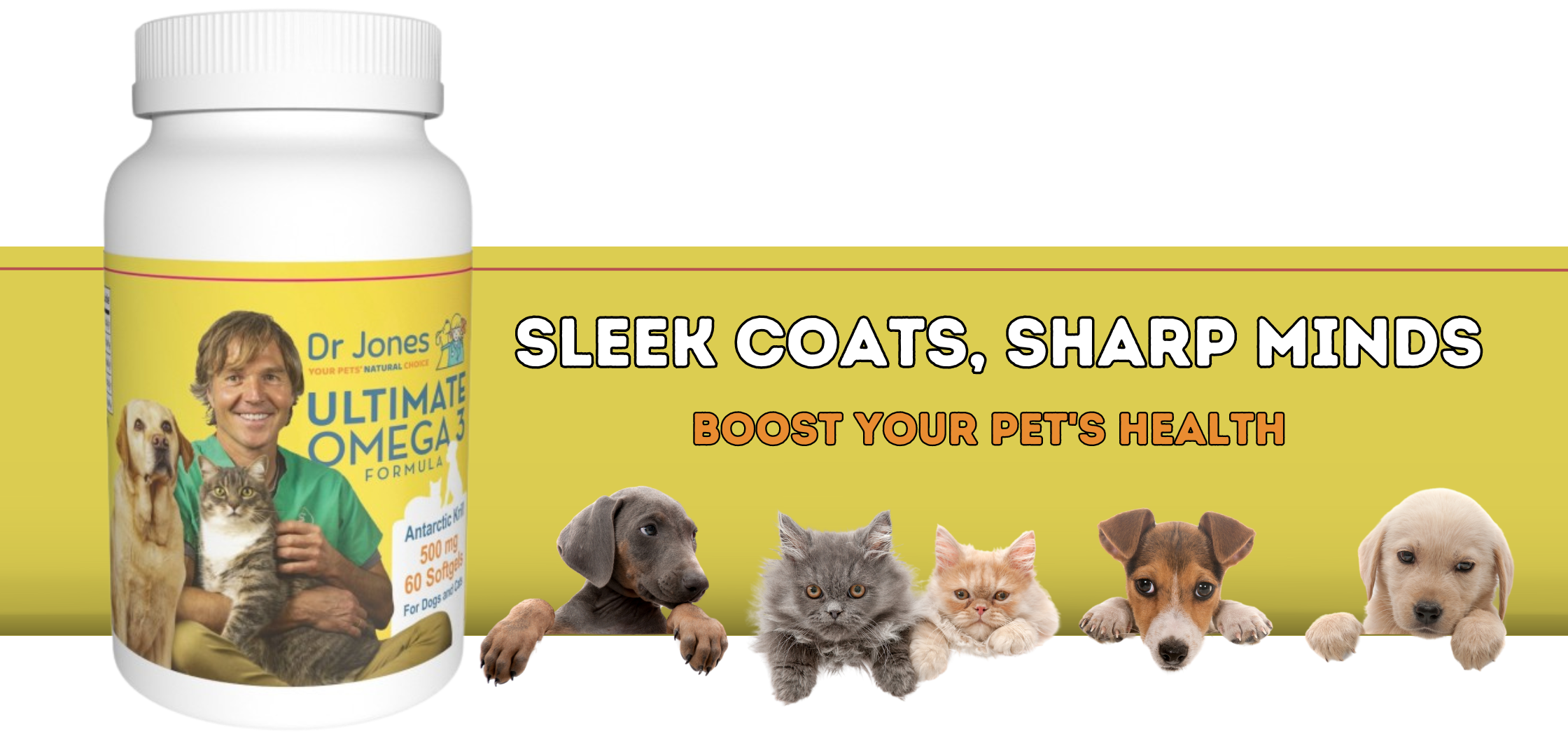Shocking Discovery: Is a Known Carcinogen Lurking in Your Pet’s Food?

Ethoxyquin is a chemical preservative that is worse than you think… .
Whatever you are giving your dog/cat should be FREE of any chemical preservatives.
In my opinion virtually EVERY dog and cat can benefit from a Good quality Omega 3 Fatty Acid Supplement, and we have an Omega 3 Supplement that is 100% Natural, Full Spectrum, Organic Antarctic Krill Oil, rich in EPA, DHA, Phospholipids and Astaxanthin.
Guaranteed to be Naturally Preserved and Ethoxyquin Free, it’s here:
Dr. Jones’ Ultimate Omega 3 Formula for Dogs and Cats
Boost your pet’s health naturally with Dr. Jones’ Ultimate Omega 3 Formula, featuring 100% Natural Antarctic Krill Oil. This formula supports skin health, brain function, liver and kidney function, joint mobility, anxiety relief, heart health, and immune system strength, all while offering better absorption and purity than traditional fish oil supplements.

Toxic Shelf Life Extender: Ethoxyquin is STILL in Pet Food
Ethoxyquin
Ethoxyquin is a synthetic antioxidant that is included in some pet foods as a preservative to protect fats and fat-soluble vitamins from turning rancid. Ethoxyquin acts as an antioxidant, and without it, foods could turn offensive in odor, flavor, and worse with some chemical compounds having the potential to turn toxic. Sounds important, doesn’t it? However, as with many issues in the pet food space, there is a darker side to Ethoxyquin’s story.
According to an archived Environmental Protection Agency Pesticide Registration document, Ethoxyquin was developed by Monsanto in the 1950s. Monsanto is the same organization behind Glyphosate, the number one selling pesticide in North America classified by the World Health Organization as “probably carcinogenic to humans."
According to Fortune, Monsanto, now owned by Bayer Corporation, has reached a verbal agreement to resolve a substantial portion of an estimated 125, 000 US Cancer lawsuits over the use of its Roundup weed killer, according to people familiar with the negotiations. The settlements are designed to resolve claims that Roundup caused Non-Hodgkins Lymphoma in some users.
Ethoxyquin was initially registered as a pesticide by MONSANTO in 1965 as a deterrent of scald in pears through post-harvest indoor application. The Environmental Protection Agency’s own toxicity documentation states that “The primary target organs affected by ethoxyquin in experimental animals are the liver and the kidneys."
It’s important to note that Ethoxyquin cannot be used in any food for human consumption (except spices, e.g., chili). Still, it can pass from feed to farmed fish, poultry, and eggs so that human beings can be exposed. As early as the 1980s, harmful effects were observed in animals and people occupationally exposed to Ethoxyquin. In vivo and in vitro studies were subsequently undertaken and found toxicity and mutagenicity effects of Ethoxyquin.
Ethoxyquin in Pet Food Today
A recent study showed that feeding high levels of Ethoxyquin might result in pigment accumulation in the liver, and an increase in serum levels of certain liver enzymes in laboratory animals. A series of in vitro studies also reported that Ethoxyquin had toxic effects on both living cells and genetic material. But, Ethoxyquin doesn’t just have the potential to cause harm in animals. It has also been shown to cause harm in humans. A search for new types of antioxidants or improved forms of Ethoxyquin has been undertaken in recent years because of the potential to cause harm to workers in pet food manufacturing facilities.
What Should A Concerned Consumer Do?
Hold brands accountableto ethoxyquin labeling regulations
While Ethoxyquin is still permitted in pet food, there are prescriptive labeling rules. According to the FDA, Ethoxyquin is an approved food additive permitted for use in animal feed. However, it has specific labeling and safe use requirements.
Recognize thatnot ALL pet foods are high-riskfor Ethoxyquin
According to Dr. Karen Becker, “Most fish meal in commercial pet foods contains the potentially deadly preservative ethoxyquin, but chances are you won’t find it on the label."
Be a conscious consumer
The unfortunate reality is that pet food marketing departments can do an effective job of selling comfort and security. Let’s be honest; we’re all trying to do the best we possibly can for our families. This includes our pets. In fact, over 90% of pet owners consider their pets part of the family. However, some brands that leverage fanciful and flowery marketing terms around “natural, “"sustainable, " etc., are sometimes the same ones using this highly questionable at best, toxic, at worst, ingredient in pet food.
Best Wishes,
Dr Andrew
P.S. This unfortunately is just ONE of the many toxins found in Pet Food, but the better quality companies are now NOT using Ethoxyquin. If the pet food ingredient label says ‘Fish Meal’ then DON’T feed it as is likely contains Ethoxquin and Mercury.
P.P.S. The Omega 3 Fatty Acids are likely the most cost effective supplement you can add to your pet’s diet. They are wonderful anti-inflammatories, being beneficial for arthritis, allergies, even IBD.
The problem is that many of the Fish Oil supplements are contaminated, so it’s a far better idea to use a clean oil such as Krill oil.
Here is one I personally use, and highly recommend 🙂
Our naturally preserved and toxin free Omega 3 supplement is here

